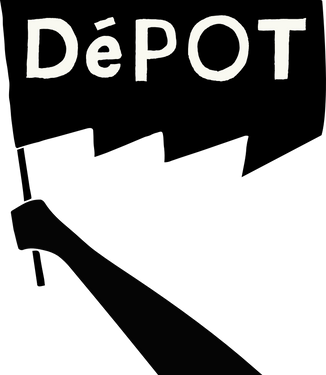
Marion is a cultural geographer, specialized in global industrial heritage interpretation. She holds a degree in Geography from Humboldt Universität zu Berlin, a Master in Geopolitics from Université Paris 8 and a PhD from Bauhaus Universität Weimar. During her professional career, she participated in two World Heritage site nominations of former industrial regions in Europe. Since 2018, she is Associate Professor for Urban Geography at Pontificia Universidad Católica de Valparaíso, Chile. Her research focuses on the global history of industry, European imperialism and global urban history. Marion lives in Valparaíso and Berlin and is TICCIH’s Secretary General since 2019. She speaks and writes English, German, Spanish and French.
Sessions auxquelles Marion Steiner participe
Lundi 29 Août, 2022
Industrialization processes have been global from their very beginning. However, their interpretation still tends to be limited to specific locations or regions, and to specific time periods. Regularly, for example, it is stated that the industrial revolution started in Europe, from where it spread to the world, supposedly bringing technological and social progress to „less developed“ countries. Earlier periods of technology and knowledge transfer processes, that were already in place in t...
Industrialization processes have been global from their very beginning. However, their interpretation still tends to be limited to specific locations or regions, and to specific time periods. Regularly, for example, it is stated that the industrial revolution started in Europe, from where it spread to the world, supposedly bringing technological and social progress to „less developed“ countries. Earlier periods of technology and knowledge transfer processes, that were already in place in t...
Industrialization processes have been global from their very beginning. However, their interpretation still tends to be limited to specific locations or regions, and to specific time periods. Regularly, for example, it is stated that the industrial revolution started in Europe, from where it spread to the world, supposedly bringing technological and social progress to „less developed“ countries. Earlier periods of technology and knowledge transfer processes, that were already in place in t...
Mardi 30 Août, 2022
Industrialization processes have been global from their very beginning. However, their interpretation still tends to be limited to specific locations or regions, and to specific time periods. Regularly, for example, it is stated that the industrial revolution started in Europe, from where it spread to the world, supposedly bringing technological and social progress to „less developed“ countries. Earlier periods of technology and knowledge transfer processes, that were already in place in t...
Industrialization processes have been global from their very beginning. However, their interpretation still tends to be limited to specific locations or regions, and to specific time periods. Regularly, for example, it is stated that the industrial revolution started in Europe, from where it spread to the world, supposedly bringing technological and social progress to „less developed“ countries. Earlier periods of technology and knowledge transfer processes, that were already in place in t...
Industrialization processes have been global from their very beginning. However, their interpretation still tends to be limited to specific locations or regions, and to specific time periods. Regularly, for example, it is stated that the industrial revolution started in Europe, from where it spread to the world, supposedly bringing technological and social progress to „less developed“ countries. Earlier periods of technology and knowledge transfer processes, that were already in place in t...
Mercredi 31 Août, 2022
Industrialization processes have been global from their very beginning. However, their interpretation still tends to be limited to specific locations or regions, and to specific time periods. Regularly, for example, it is stated that the industrial revolution started in Europe, from where it spread to the world, supposedly bringing technological and social progress to „less developed“ countries. Earlier periods of technology and knowledge transfer processes, that were already in place in t...
In this roundtable we will resume and discuss main ideas and findings from the regular session on "Reinterpreting industrial heritage from a global perspective", which will be held in 7 slots from Monday through to Wednesday morning. During these days, we will deepen the discussion between the session’s participants and other colleagues, while spending time together on the congress’ floors and doorsteps. In addition, we can build on previous reflections some of us shared dur...
Sessions auxquelles Marion Steiner assiste
Dimanche 28 Août, 2022
Vous êtes invités au lancement du livre "Deindustrializing Montreal : Entangled Histories of Race, Residence and Class" le dimanche 28 août (13h-15h) à la brasserie Les Sans Taverne du Batiment 7 (1900 rue Le Ber) à Pointe-Saint-Charles. Deindustrializing Montre...
Joignez-vous aux organisateurs du congrès et aux membres du board de TICCIH pour un cocktail de bienvenue et quelques mots festifs de présentation, dans l’ancienne forge de l’École technique de Montréal, fondée en 1909, aujourd’hui intégrée au campus de l’Université du Québec à Montréal.
Lundi 29 Août, 2022
Si la vallée du canal de Lachine a été le berceau de l’industrialisation canadienne, la géographie industrielle métropolitaine ne s’y est pas confinée, peu s’en faut, Outre les grandes concentrations d’entreprises des quartiers centraux, elle est constituée des réseaux infrastructuraux, d’une douzaine de centrales hydroélectriques et des ensembles manufacturiers disséminés dans une quinzaine de petites villes aujourd’hui intégrées dans l’aire métropolitaine. La conférence proposera un surv...
Mardi 30 Août, 2022
Joignez-vous à nous pour poursuivre de manière informelle la discussion lancée lors de la conférence publique.Une consommation sera offerte aux quinze premières personnes arrivées.
Mercredi 31 Août, 2022
Le canal de Soulanges est une infrastructure, localisée sur la rive nord du Saint-Laurent, qui a été ouverte au trafic maritime en 1900, succédant alors au « vieux canal » de Beauharnois (établi depuis 1843 sur la rive nord du Saint-Laurent). Le canal de Soulanges a été abandonné en 1959, alors que s’ouvrait l’actuelle Voie maritime du Saint-Laurent qui relie les Grands Lacs à l’Atlantique. La conception du canal de Soulanges est due à l’ingénieur Thomas Monro (1831-1...
In this lecture, I would like to talk about deindustrialised communities, heritage and memory in the context of right-wing populism. Drawing on studies of memory and heritage, I argue that right-wing populists have cornered the market on talking about the past of deindustrialised communities. They have successfully misrepresented this rich and complex history to fuel rage, resentment, fear and reactionary nostalgia. Indeed, ‘the past’, and in particular the industr...
Joignez-vous à nous pour poursuivre de manière informelle la discussion lancée lors de la conférence publique.Une consommation sera offerte aux quinze premières personnes arrivées.
Jeudi 1 Septembre, 2022
This session will bring together four specialists in the history of the production of oil and petroleum, natural gas, coal and nuclear energy, to debate the distinct as well as shared issues around the study and protection of their industrial heritage. The history of energy production is characterized by groundbreaking technological advances and achievements, enormous technological, social and environmental consequences, and the evolution of distinctive landscapes and communiti...
This lecture will argue that the landscapes of industrial heritage that can be found in different parts of the world are directly related to the place-specific trajectories of deindustrialization. In other words: the different ways in which deindustrialization impacts on local communities has a direct bearing on the emergence of forms of industrial heritage. I will differentialte between deindustrialization paths and related industrial heritage regimes in a) Anglo-...
Le quartier Centre-Sud est un ancien quartier industriel et ouvrier ; son patrimoine est riche et unique. La visite permettra de découvrir, entre autres, l’usine Macdonald Tobacco et la confiserie Raymond, les anciens logements ouvriers typiques du quartier, et les réutilisations d’anciens bâtiments à des fins culturelles et communautaires. L’activité débutera au métro Frontenac et se terminera par une visite à l’Écomusée du fie...
Vendredi 2 Septembre, 2022
In this meeting, TICCIH representatives from around the world will present work in the field of industrial heritage in their respective countries. The presentations are based on the national reports that TICCIH has gathered for the 2022 World Congress, but may emphasize particular matters. These can range across several fields where industrial heritage plays a role – from academic research and other forms of knowledge production, to heritage management a...
In this meeting, TICCIH representatives from around the world will present work in the field of industrial heritage in their respective countries. The presentations are based on the national reports that TICCIH has gathered for the 2022 World Congress, but may emphasize particular matters. These can range across several fields where industrial heritage plays a role – from academic research and other forms of knowledge production, to heritage management a...
At every World Congress, the international TICCIH community celebrates a General Assembly of its members. The event is open for any registered member of TICCIH, as well as the wider public. According to the current TICCIH Statutes (https://ticcih.org/about/statutes/), however, only Na...
In the refusal of people in communities abandoned by industrial capital to abandon their own places, we can read an implicit critique of the mobility and unaccountability of capital, raised by those who were once inside (however tenuously or uncomfortably) and now find themselves marginalized, “left behind.” The desire to catch up again, whether through attracting new investment or transvaluing abandoned sites as tourist attractions, makes this an essentially conservative critique that is ...
Venez échanger sur les bons moments du congrès et célébrer vos découvertes scientifiques et professionnelles dans une ancienne fabrique de confiture de fruits, l’Usine C, construite en 1913 et transformée à la fin des années 1970 en lieu de création et de diffusion.Découvrez la gastronomie montréalaise grâce à un traiteur d’exception. Apprenez des bribes du patrimoine musical montréalais et de l’histoire du quartier industriel qui lui a prêté vie. Puis entendez et vivez la tradition...
Samedi 3 Septembre, 2022
Suivez les traces du réseau ferroviaire du Canadien Pacifique et des anciens ateliers Angus, qui ont joué un rôle majeur dans le développement industriel et résidentiel du quartier Rosemont. Cette visite vous propose de mieux comprendre l'histoire de différents sites industriels établis dans ce quartier et transformés aujourd'hui en milieux de vie et en pôles d'emploi.Une visite conçue et guidée par Héritage Montréal. Départ au coin des rues...








